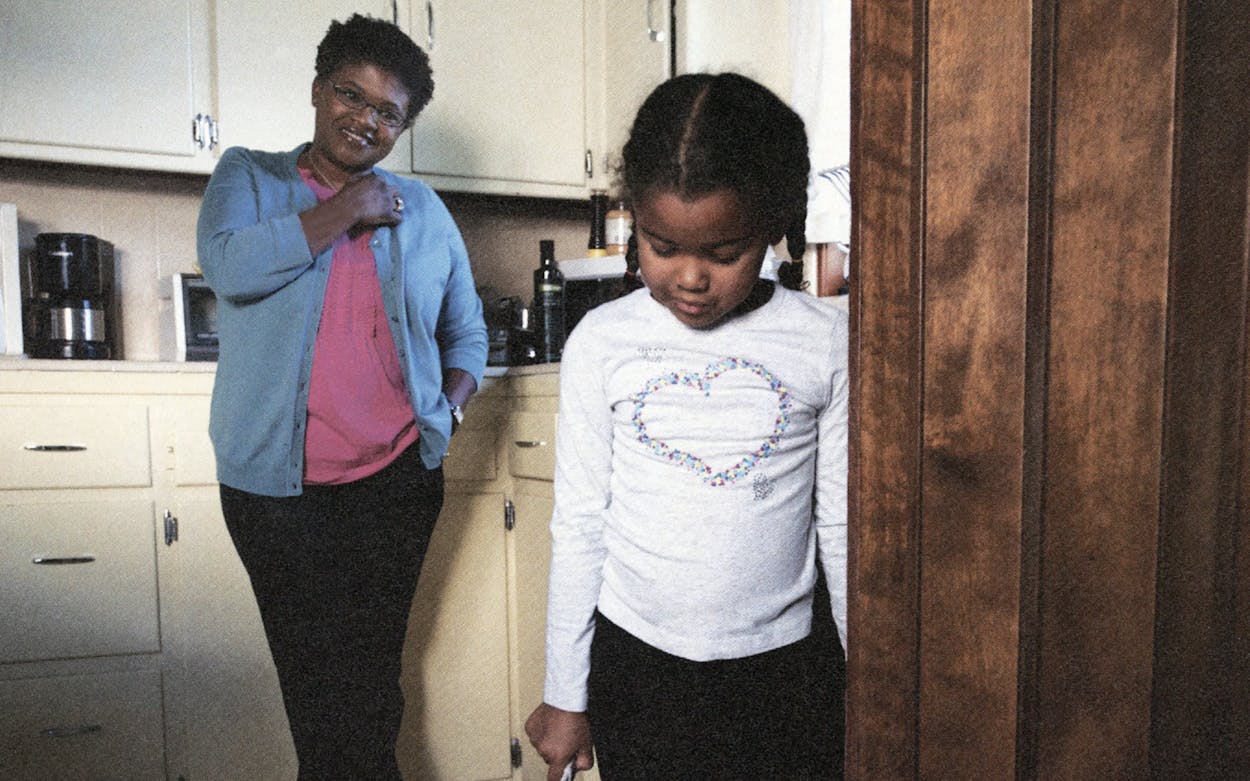When Attica Locke wrote “The Exile’s Lament,” her 2012 essay on being from (and leaving) Texas, she was already deep into an incredibly accomplished career. Her debut novel, Black Water Rising, published three years earlier, had been nominated for a half dozen major awards, and its follow-up was hotly anticipated. Working in Hollywood, she’d contributed to film scripts for major studios. But she was nervous, she says, about telling a more personal story.
“It just scared the crap out of me,” she recalls. “I’m very comfortable just making things up. I get very nervous about telling the truth.”
What Locke turned in was a powerful, clear-eyed—yet tenderhearted—look at both Texas and her adopted home in California. She wrote of taking her family for barbecue in the San Fernando Valley, north of Los Angeles, and anxiously awaiting her father’s approval of the meal. She confronted the question of why a Black family like hers, which had lived in Texas through generations of both subtle and overt racism, chose to continue calling the state home. And she grappled with how her decision to pursue a career in Hollywood meant that her own daughter, then barely out of toddlerhood, would grow up disconnected from the Texan identity that Locke wears like a favorite pair of cowboy boots.
Balancing the tension between her reverence for Texas and her clarity about the ways the state does not always live up to the ideals that make her love it, Locke says, was actually the easy part: “I started investigating—Why do I love this place so much? And then, why did my people never leave? Why did we not flee with other people during the Great Migration? And all of that really opened up my heart into understanding this tension of wanting to believe in a Texas that is better than its worst impulses, while also having to acknowledge that there are things about the state that just don’t work for me. It’s what it is to be any marginalized person in Texas.”
Locke says her exploration of those issues in “The Exile’s Lament” led her to explore similar themes in her 2017 and 2019 mystery novels Bluebird, Bluebird and Heaven, My Home, both of which revolve around the experiences of a Black Texas Ranger named Darren Matthews. “The seeds of that series are in that article,” she explains.
These days, Locke has deepened her relationships with both her native Texas and her adopted California. Despite the much-discussed rivalry between the two, she finds the states more of a kind than in conflict. “I feel a real twinning of spirit,” she says. “I’m not sure if they’re fraternal twins or cousins, but I personally always felt something about the spirit of L.A. and the spirit of Houston that feels of a piece. And now, I think more people are feeling that way.”








